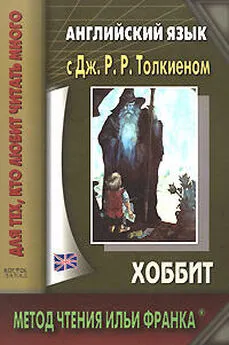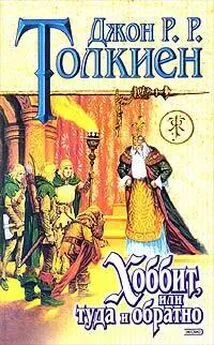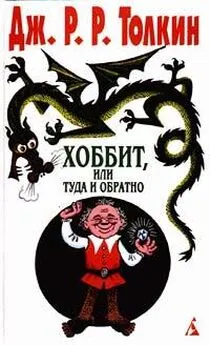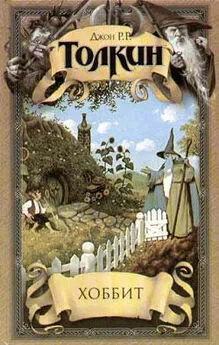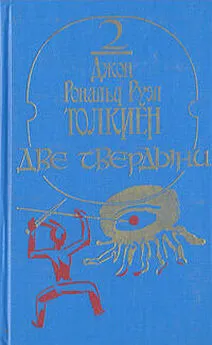Джон Толкиен - Английский язык с Дж. Р. Р. Толкиеном. Хоббит
- Название:Английский язык с Дж. Р. Р. Толкиеном. Хоббит
- Автор:
- Жанр:
- Издательство:АСТ, Восток-Запад
- Год:2008
- Город:Москва
- ISBN:978-5-17-048593-2, 978-5-478-00597-9
- Рейтинг:
- Избранное:Добавить в избранное
-
Отзывы:
-
Ваша оценка:
Джон Толкиен - Английский язык с Дж. Р. Р. Толкиеном. Хоббит краткое содержание
В книге предлагается произведение на английском языке Джона Р. Р. Толкиена «Хоббит», адаптированное (без упрощения текста оригинала) по методу Ильи Франка. Уникальность метода заключается в том, что запоминание слов и выражений происходит за счет их повторяемости, без заучивания и необходимости использовать словарь.
Пособие способствует эффективному освоению языка, может служить дополнением к учебной программе.
Предназначено для студентов, для изучающих английский язык самостоятельно, а также для всех интересующихся английской культурой.
Пособие подготовила Ольга Ламонова.
Английский язык с Дж. Р. Р. Толкиеном. Хоббит - читать онлайн бесплатно полную версию (весь текст целиком)
Интервал:
Закладка:
inquisitive [ɪnˈkwɪzɪtɪv] scuffle [ˈskʌf (ǝ) l] extraordinarily [ɪkˈstrɔ: d (ǝ) n (ǝ) rɪlɪ]
Occasionally a slender beam of sun that had the luck to slip in through some opening in the leaves far above, and still more luck in not being caught in the tangled boughs and matted twigs beneath, stabbed down thin and bright before them. But this was seldom, and it soon ceased altogether. There were black squirrels in the wood. As Bilbo’s sharp inquisitive eyes got used to seeing things he could catch glimpses of them whisking off the path and scuttling behind tree-trunks. There were queer noises too, grunts, scufflings, and hurryings in the undergrowth, and among the leaves that lay piled endlessly thick in places on the forest-floor; but what made the noises he could not see. The nastiest things they saw were the cobwebs: dark dense cobwebs with threads extraordinarily thick, often stretched from tree to tree, or tangled in the lower branches on either side of them. There were none stretched across the path, but whether because some magic kept it clear, or for what other reason they could not guess.
It was not long before they grew to hate the forest (уже очень вскоре: «не прошло много времени до того, как» они стали ненавидеть этот лес; to grow (grew, grown) + to infinitive — выражает начало действия, выраженного инфинитивом ) as heartily (так же искренне) as they had hated the tunnels of the goblins (как они ненавидели туннели гоблинов до этого), and it seemed (и он, казалось) to offer even less hope of any ending (предлагал даже меньше надежд /на то, что он/ когда-нибудь закончится). But they had to go on and on (но они должны были идти вперед и вперед), long after they were sick for a sight of the sun (спустя много времени после того, как им ужасно хотелось увидеть солнышко; to be sick for smth., smb. — тосковать, sick — чувствующий тошноту, больной ) and of the sky (и небо), and longed for the feel of wind on their faces (и жаждали почувствовать ветерок на своих лицах; a feel — осязание, ощущение, чувство ). There was no movement of air (не было никакого движения воздуха) down under the forest-roof (внизу, под плотными кронами деревьев; forest — лес, roof — крыша ), and it was everlastingly still and dark and stuffy (и он был постоянно/вечно тих, и темен, и душен; everlasting — вечный: «вечнодлящийся» ). Even the dwarves felt it (даже гномы почувствовали это), who were used to tunneling (которые привыкли к проделыванию туннелей), and lived at times for long whiles (и иногда жили долгие периоды времени) without the light of the sun (без солнечного света); but the hobbit (но хоббит), who liked holes to make a house in (которому нравились норки для того, чтобы устраивать в них домик) but not to spend summer days in (но не для того, чтобы проводить в них солнечные деньки), felt he was being slowly suffocated (чувствовал, что он медленно начинал задыхаться: «что он подвергался медленному удушению»; to suffocate — душить, удушать ). The nights were the worst (самыми плохими были ночи). It then became pitch-dark (тогда становилось очень темно; pitch — смола, деготь ) — not what you call pitch-dark (не то, как вы называете «очень темно»), but really pitch (а просто-таки тьма кромешная); so black that you really could see nothing (так черно, что действительно ничего не было видно). Bilbo tried flapping his hand in front of his nose (Бильбо пытался махать своей рукой перед своим же носом), but he could not see it at all (но он совершенно не мог ее разглядеть).
heartily [ˈhɑ: tɪlɪ] everlastingly [evǝˈlɑ: stɪŋlɪ] suffocate [ˈsʌfǝkeɪt]
It was not long before they grew to hate the forest as heartily as they had hated the tunnels of the goblins, and it seemed to offer even less hope of any ending. But they had to go on and on, long after they were sick for a sight of the sun and of the sky, and longed for the feel of wind on their faces. There was no movement of air down under the forest-roof, and it was everlastingly still and dark and stuffy. Even the dwarves felt it, who were used to tunnelling, and lived at times for long whiles without the light of the sun; but the hobbit, who liked holes to make a house in but not to spend summer days in, felt he was being slowly suffocated. The nights were the worst. It then became pitch-dark — not what you call pitch-dark, but really pitch; so black that you really could see nothing. Bilbo tried flapping his hand in front of his nose, but he could not see it at all.
Well, perhaps it is not true to say (ну уж, возможно, было бы неправдой сказать) that they could see nothing (что они ничего не могли видеть): they could see eyes (они могли видеть глаза). They slept all closely huddled together (они спали, близко располагаясь друг к другу; to huddle — валить в одну кучу, сбивать в кучу; перемешивать ), and took it in turns to watch (и по очереди дежурили; turn — оборот, поворот, to watch — наблюдать, следить ); and when it was Bilbo’s turn (и когда была очередь Бильбо) he would see gleams in the darkness round them (он видел слабый свет в темноте вокруг них), and sometimes pairs of yellow or red or green eyes (и иногда пары желтых, или красных, или зеленых глаз) would stare at him (смотрели пристально на него) from a little distance (совсем близко: «с небольшого расстояния»), and then slowly fade and disappear (затем /они/ медленно затухали и исчезали; tofade — вянуть, выгорать ) and slowly shine out again in another place (и медленно загорались снова, в другом месте). And sometimes they would gleam down (а иногда они даже мерцали /вниз/) from the branches just above him (с ветвей прямо над ним); and that was most terrifying (и это было самым ужасающим). But the eyes that he liked the least (но глаза, которые ему нравились меньше всего) were horrible pale bulbous sort of eyes (были ужасные, бледные, выпуклые глаза; bulbous — луковичный; bulb — луковица ).
huddle [hʌdl] disappear [dɪsǝˈpɪǝ] terrify [ˈterɪfaɪ] bulbous [ˈbʌlbǝs]
Well, perhaps it is not true to say that they could see nothing: they could see eyes. They slept all closely huddled together, and took it in turns to watch; and when it was Bilbo’s turn he would see gleams in the darkness round them, and sometimes pairs of yellow or red or green eyes would stare at him from a little distance, and then slowly fade and disappear and slowly shine out again in another place. And sometimes they would gleam down from the branches just above him; and that was most terrifying. But the eyes that he liked the least were horrible pale bulbous sort of eyes.
“Insect eyes (глаза насекомого) ” he thought (думал он; to think ), “not animal eyes (/это/ не глаза животного), only they are much too big (только они очень уж большие). ” Although it was not yet very cold (хотя еще было не очень холодно), they tried lighting watch-fires at night (они пытались разводить: «разжигать» бивачные костры ночью), but they soon gave that up (но вскоре они бросили это/отказались от этого). It seemed to bring hundreds and hundreds of eyes (это, казалось, привлекает сотни и сотни глаз) all round them (со всех сторон вокруг них), though the creatures (хотя существа), whatever they were (кто бы они ни были), were careful never to let their bodies show (были осторожны и никогда не показывали свои туловища; to let smth. do smth. — допустить, позволить, чтобы что-то произошло ) in the little flicker of the flames (в небольших вспышках пламени). Worse still (что еще хуже) it brought thousands of dark-grey and black moths (это привлекало тысячи темно-серых и черных мотыльков), some nearly as big as your hand (некоторые /были/ такие же большие, что твоя рука), flapping and whirring round their ears (хлопающих /крыльями/ и жужжащих вокруг их ушей). They could not stand that (они не могли этого выносить; to stand — стоять, находиться ), nor the huge bats (ни огромных летучих мышей), black as a top-hat, either (черных, как цилиндры, тоже /не могли выносить/); so they gave up fires (так что они перестали разводить костры) and sat at night (и сидели ночами) and dozed in the enormous uncanny darkness (и дремали в огромнейшей жуткой темноте). All this went on (все это продолжалось) for what seemed to the hobbit ages upon ages (/столько/, что хоббиту показалось вечностью: «сроками /добавленными/ на сроки»; age — возраст, эра, долгий срок ); and he was always hungry (и он всегда был голоден), for they were extremely careful with their provisions (так как они были чрезвычайно осторожны = экономны со своими запасами съестного). Even so (даже при этих условиях), as days followed days (когда дни следовали за днями), and still the forest seemed just the same (и все же лес казался все таким же), they began to get anxious (они начали проявлять тревогу: «становиться встревоженными»). The food would not last for ever (еда не будет длиться вечно): it was in fact already beginning to get low (ее уже, на самом деле, становилось меньше; low — низкий, ниже желаемого уровня ).
Читать дальшеИнтервал:
Закладка:
